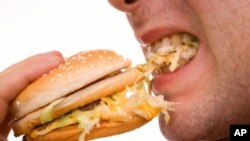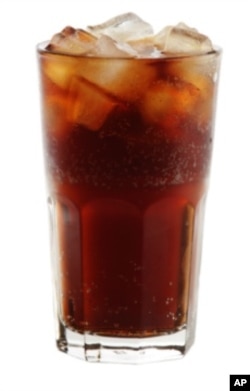Americans love fast food. It's tasty and it's cheap. It's also heavy on fats and sugar. But nutritional epidemiologist Penny Gordon-Larsen found that when the price of fast food goes up, no matter how tasty it is, consumption goes down.
"What we found was that an 18 percent increase in soda price translated to a 56-calorie reduction per day, which translated further to less weight gain over a year," says Gordon-Larsen.
That, she says, could have a positive impact on public health.
Financial approach to a healthier population
For the past 20 years, Gordon-Larsen and her colleagues in the Department of Nutrition at the University of North Carolina have followed more than 5,000 adults in a national study of coronary artery disease risk. They tracked participants' eating habits on a regular basis, and compared them with food costs.
Click to Listen:
They found an inverse relationship between the cost and consumption of foods like sugary sodas and pizza.
The study's finding seems to confirm the value of a public health strategy like the one already in place in Philadelphia. The city has imposed a 2-cent tax on each ounce of soda sold - about 32 cents for a half-liter bottle.
Gordon-Larsen says that if a similar soda tax were applied throughout the country, there could be a real impact on health. "At about that level of an increase, we would see that we would cut calories by about 124 calories per day and that you would have a large reduction in weight and risk of diabetes."
She notes that increased taxes on cigarettes have been especially effective in lowering smoking rates among teenagers. "In the adolescent age group, we would expect that the price manipulations would have a larger effect on caloric intake and also on weight."
Gordon-Larsen says her findings, coupled with the demonstrated effectiveness of cigarette taxes, suggest that increasing the price of so-called junk foods like soda and pizza may help steer Americans to a healthier diet. And that, in turn, could lead to lower rates of diabetes and obesity.
















